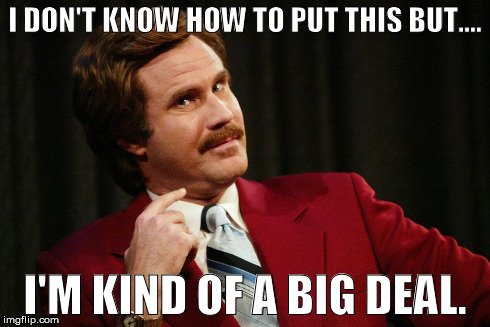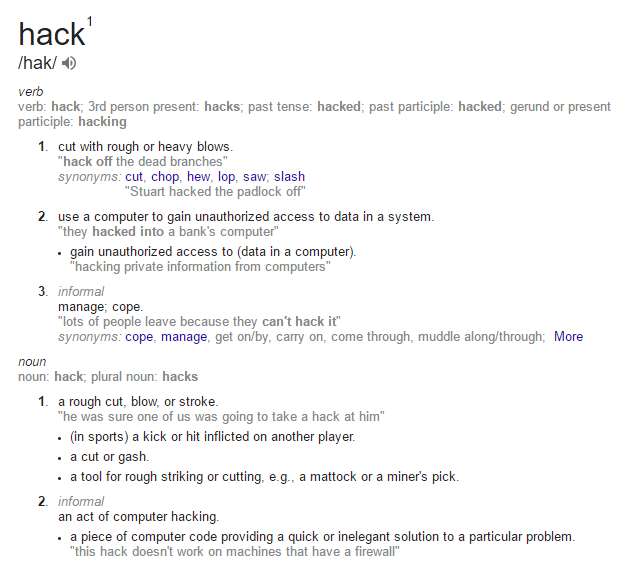Don't judge me, but this morning while watching Rachel Ray on the television (which is a horrible show to watch when you are hungry by the way), I was reminded of how society has altered the meaning of a certain word from something significant and meaningful to something insignificant and meaningless.

That word is the word "hack". I am sure that you have noticed that society's usage of the word hack is indeed a modern day enigma. Maybe I am "an old", but I remember when the word hack had a meaning- it was kind of a big deal!

Yes hack! I agree, you are kind of a big deal. Yes, I am speaking directly to words now... this could get weird.
Nowadays people abuse you excessively, and while I am sure it bothers you old friend- it is also frustratingly tiresome on my OCD. I am sure I am not the only one that feels this way. In fact, I know I am not alone. But then why do I feel so alone?

I definitely don't want to be all by myself- that sucks. Hello society?!?!! Wake up and smell the coffee! May I please remind you of the definition of the word hack?

Do you smell what I'm stepping in Steemit? The next time your friend, lover or grandma use the word "hack" after celebrating their significant victory of having successfully tied their shoes:
Please slap them for me!!

"Maybe I am "an old", but I remember when the word hack had a meaning- it was kind of a big deal!"
The meaning of words like "virus" and "hack" got altered (or abused) as time went on.
Yeah, I guess I am old school.
According to an authority¹ on the definition, a ‘hacker’ should not be confused with a ‘cracker’:
¹ Eric S. Raymond is purported to be the original progenitor of the term ‘open source’.
Interesting, thanks for sharing!
I love that show!
Me too! Best show ever!